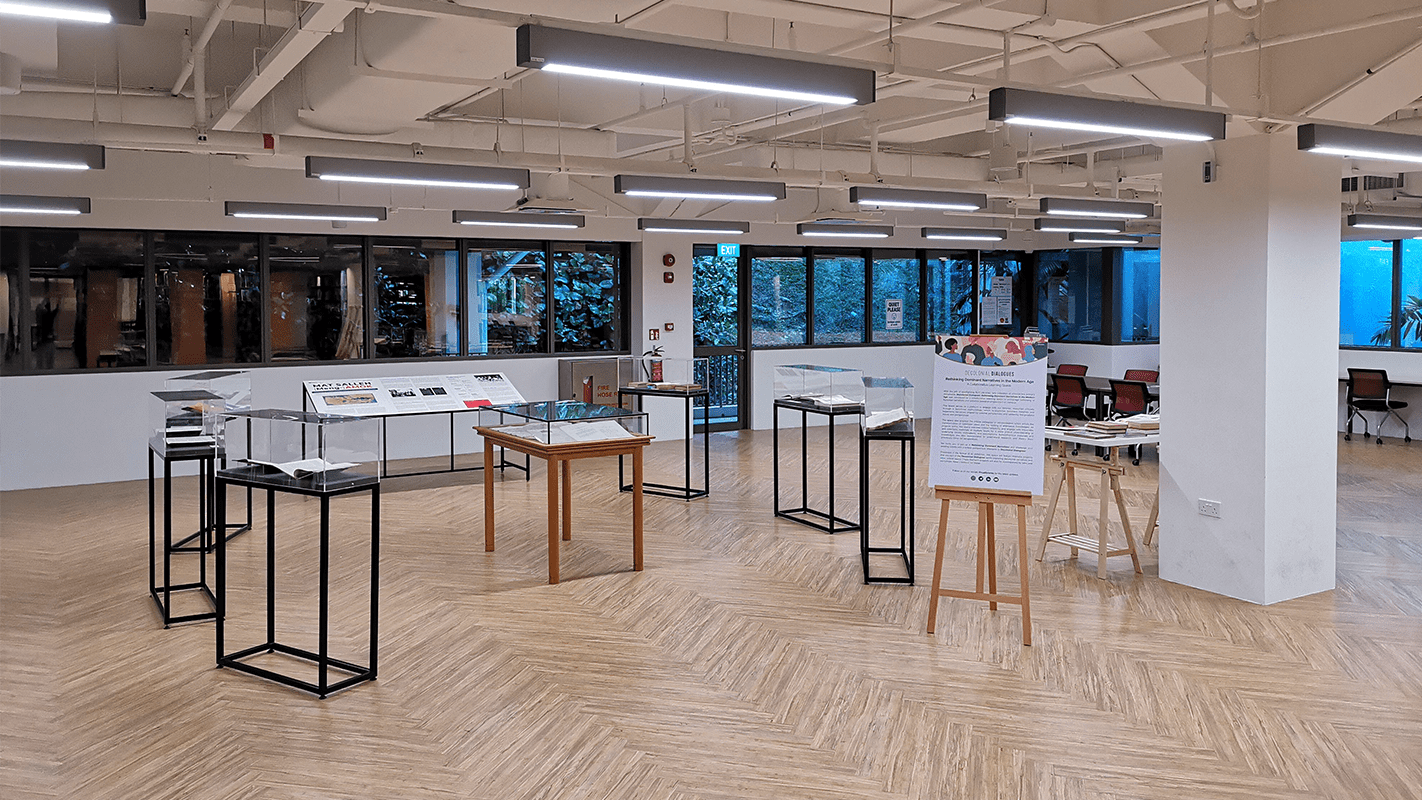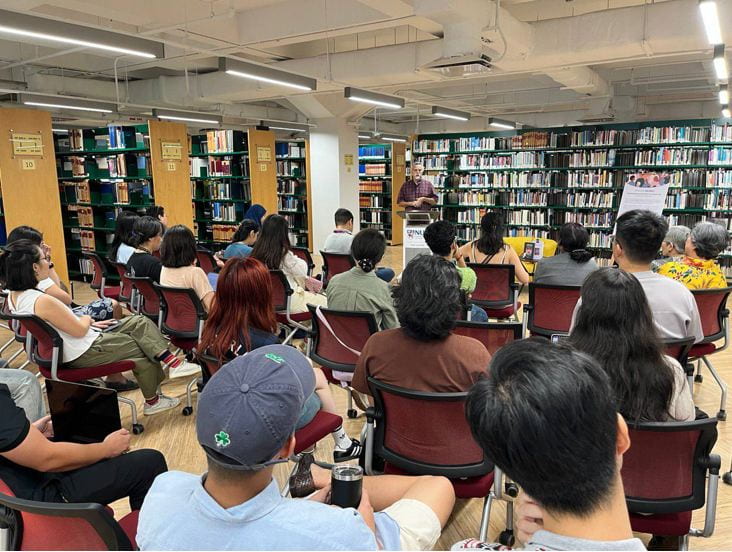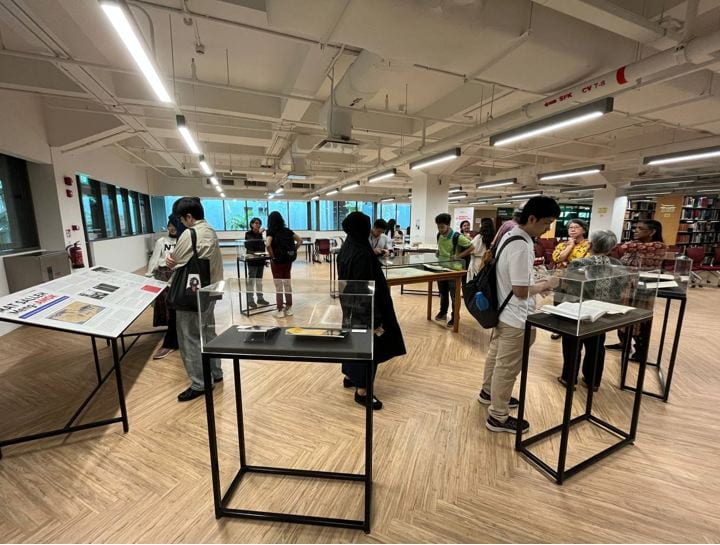By Nur Diyana
In recent years, there has been a growing recognition of the need to decolonise academic spaces to dismantle entrenched hegemonic narratives and foster inclusive intellectual environments. The National University of Singapore (NUS) Libraries took a significant step in this direction with the launch of Decolonial Dialogues, a collaborative learning space within the Singapore-Malaysia Collection at NUS Central Library.
The launch of Decolonial Dialogues symbolises NUS Libraries’ commitment to fostering critical engagement with colonial histories and marginalised narratives. In her opening remarks research librarian Nur Diyana emphasised the importance of critical thinking and intellectual autonomy in challenging prevailing societal beliefs. Drawing from the works of scholars like Jose Ortega, she underscored the pivotal role of librarians in facilitating access to diverse perspectives and narratives.
Inaugural Address: Professor Farid Alatas on Decolonising Academia and the Library
Professor Farid Alatas delivered a thought-provoking talk on the imperative task of decolonising academic spaces and the library. He emphasised the need to de-center dominant perspectives and foreground marginalised voices in academic discourse. He also underscored that the effect of the library on the development of civilisation and human life is not only in the dissemination of knowledge but in the generation of new knowledge and awareness. The collections within NUS Libraries, such as the rare books collection which covers various disciplines and bearing imprint dates from around the 14th to the early 20th century, offer unique insights into historical perspectives, cultural nuances, and forgotten wisdom.
Prof Farid’s talk ignited stimulating discussions among attendees from diverse academic backgrounds. The lively question and answer session showcased the richness of perspectives shaping contemporary discourse, underscoring the importance of ongoing dialogue and collaboration in advancing research and scholarship.
Engaging with Decolonial Narratives: Mat Salleh (Meng-)amok Exhibition
Central to the launch was the unveiling of its inaugural exhibition, “Mat Salleh (Meng-)amok: Uncovering Indigenous Resistance in the Scramble for Borneo,” curated by student curator Diyanah Nasuha. The exhibition challenged conventional interpretations of the Mat Salleh Rebellion (1895 to 1903) by interrogating power dynamics and indigenous resistance against British colonialism. Through a careful selection of primary documents from NUS Libraries’ rare books collection, visitors are invited to reconsider the legacy of Datu Mohammed Salleh bin Datu Balu and confront the epistemic violence perpetuated by the British Empire.
The launch of Decolonial Dialogues marks a significant milestone in the journey towards decolonising academic spaces at NUS Libraries, specifically through the use of our collections that are rare and valuable. The event underscored the importance of engaging critically with colonial histories and challenging hegemonic narratives. As participants delved into the exhibition and absorbed Professor Alatas’s insights, they were reminded of the ongoing work required to foster inclusive intellectual environments. By embracing diverse perspectives and confronting colonial legacies, we move one step closer to creating a more equitable and inclusive scholarly community.
To view the exhibition, head on to the Singapore/Malaysia Collection on Level 5 at NUS Central Library. Keep a look out for our next workshop to hear student curator Diyanah Nasuha share more about Mat Salleh (Meng-)amok: Uncovering Indigenous Resistance in the Scramble for Borneo.
**Decolonial Dialogues is a new collaborative learning space within the Singapore/Malaysia Collection at NUS Central Library (Level 5). At the heart of our commitment to decoloniality lies the recognition and re-evaluation of dominant histories and hegemonic narratives. This initiative aims to spotlight our rare collection of colonial-era primary documents while serving as a platform to engage critically with these resources through a decolonial methodology, in collaboration with students, researchers and various stakeholders.



